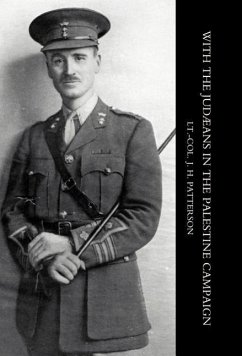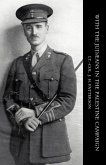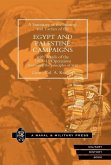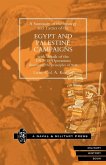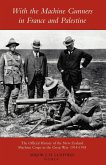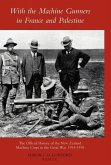Andere Kunden interessierten sich auch für
Produktdetails
- Verlag: Naval & Military Press
- Seitenzahl: 320
- Erscheinungstermin: 20. Juni 2006
- Englisch
- Abmessung: 222mm x 145mm x 22mm
- Gewicht: 597g
- ISBN-13: 9781847344335
- ISBN-10: 184734433X
- Artikelnr.: 21443413
Hinweis: Dieser Artikel kann nur an eine deutsche Lieferadresse ausgeliefert werden.
- Produktsicherheitsverantwortliche/r
- Europaallee 1
- 36244 Bad Hersfeld
- gpsr@libri.de
Lieutenant-Colonel John Henry Patterson, DSO (10 November 1867 - 18 June 1947), known as J. H. Patterson, was a British soldier, hunter, author and Christian Zionist, best known for his book The Man-Eaters of Tsavo (1907), which details his experiences while building a railway bridge over the Tsavo river in British East Africa (now Kenya) in 1898-99. The book has inspired three Hollywood films - Bwana Devil (1952), Killers of Kilimanjaro (1959) and The Ghost and the Darkness (1996) in which he was portrayed by Val Kilmer. In the First World War, Patterson was the commander of the Jewish Legion, "the first Jewish fighting force in nearly two millennia", and has been described as the godfather of the modern Israel Defense Forces. Patterson was born in 1867 in Forgney, Ballymahon, County Longford, Ireland, to a Protestant father and Roman Catholic mother.[2] He joined the British Army at the age of seventeen and eventually attained the rank of Lieutenant-Colonel[3] and was awarded the Distinguished Service Order (DSO). He finally retired from the military in 1920. In 1898, Patterson was commissioned by the Uganda Railway committee in London to oversee the construction of a railway bridge over the Tsavo River in present-day Kenya. He arrived at the site in March of that year. Almost immediately after Patterson's arrival, lion attacks began to take place on the workforce, with the lions dragging men out of their tents at night and feeding on their victims. Despite the building of thorn barriers (bomas) around the camps, bonfires at night, and strict after-dark curfews, the attacks escalated dramatically, to the point where the bridge construction eventually ceased due to a fearful, mass departure by the workers. Along with the obvious financial consequences of the work stoppage, Patterson faced the challenge of maintaining his authority and even his personal safety at this remote site against the increasingly hostile and superstitious workers, many of whom were convinced that the lions were in fact evil spirits, come to punish those who worked at Tsavo, and that he was the cause of the misfortune because the attacks had coincided with his arrival.

